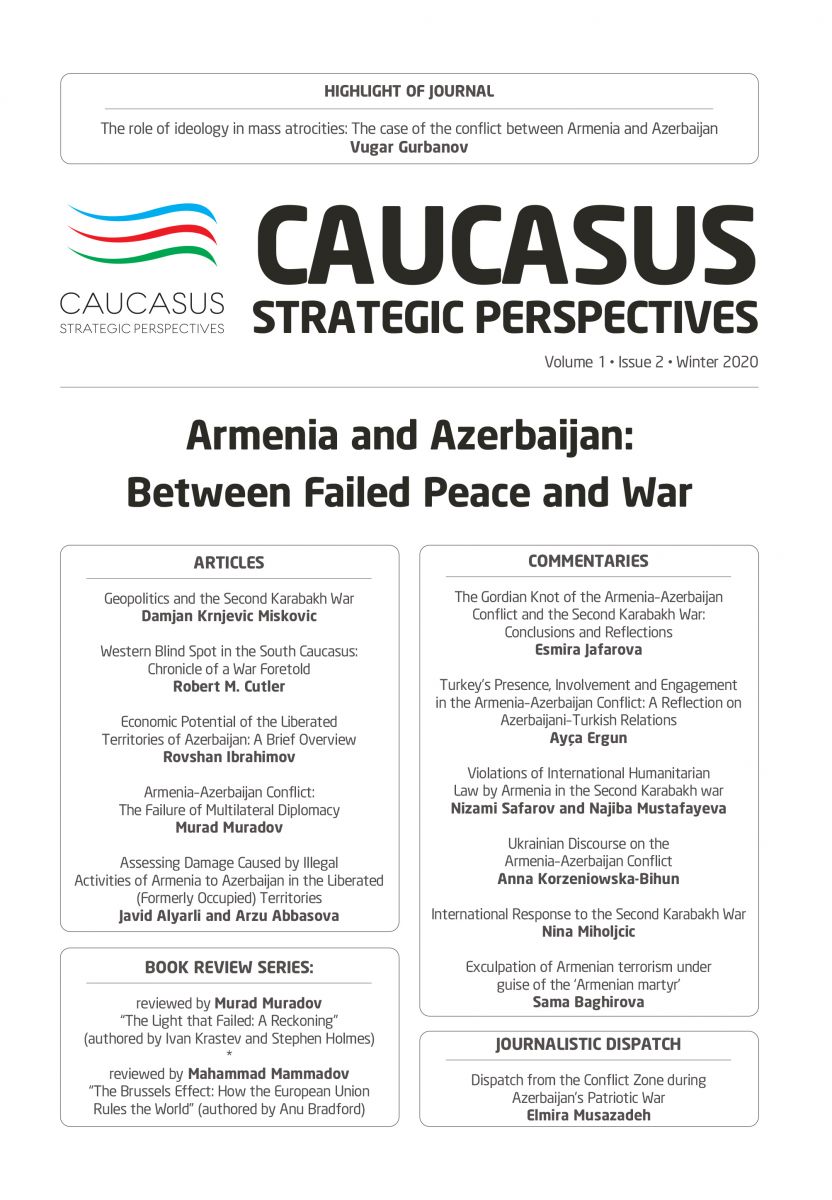Geopolitics and the Second Karabakh War
The question of how geopolitics bore upon the Second Karabakh War is examined with reference to Aristotle’s presentation of tragedy (entanglement, unravelling). The strategic consequences of the return of geopolitics to international relations owing to the onset of a G-Zero world were prudentially understood by Azerbaijan and tragically misunderstood by Armenia. As a result, Yerevan committed geopolitical malpractice by mistakenly believing that entrenching its posture of clientelism would enable the perpetuation of its occupation of Azerbaijan’s Nagorno-Karabakh region and the seven surrounding districts. In contrast, Baku harnessed the consequences of the ongoing transformation of the international system to entrench its position as a keystone state in the Silk Road region. This goes a long way towards explaining how Azerbaijan was ultimately able to ensure it alone would determine the time and manner of the restoration of its territorial integrity. Thus, geopolitical considerations and misunderstandings contributed greatly to the outcome of the Second Karabakh War. This will have enduring consequences for the emerging regional order of the Silk Road region.
Latest news
- 12/27/2024 Call for Submissions-Caucasus Strategic Perspectives, Volume 6, Issue 1, Summer 2025 667 views
Popular articles
- 07/18/2022 The Russia–Ukraine War: Perspective of Azerbaijan 4322 views
- 10/14/2020 The Non-Aligned Movement: In Pursuit of Validity and Relevance in the Contemporary Global Order 3307 views
- 10/14/2020 Vicious Circle of the South Caucasus: Intra-Regional Conflicts and Geopolitical Heterogeneity 3290 views
- 10/14/2020 Relevance of Non-Alignment for Azerbaijan’s Foreign and Security Policy 3019 views





